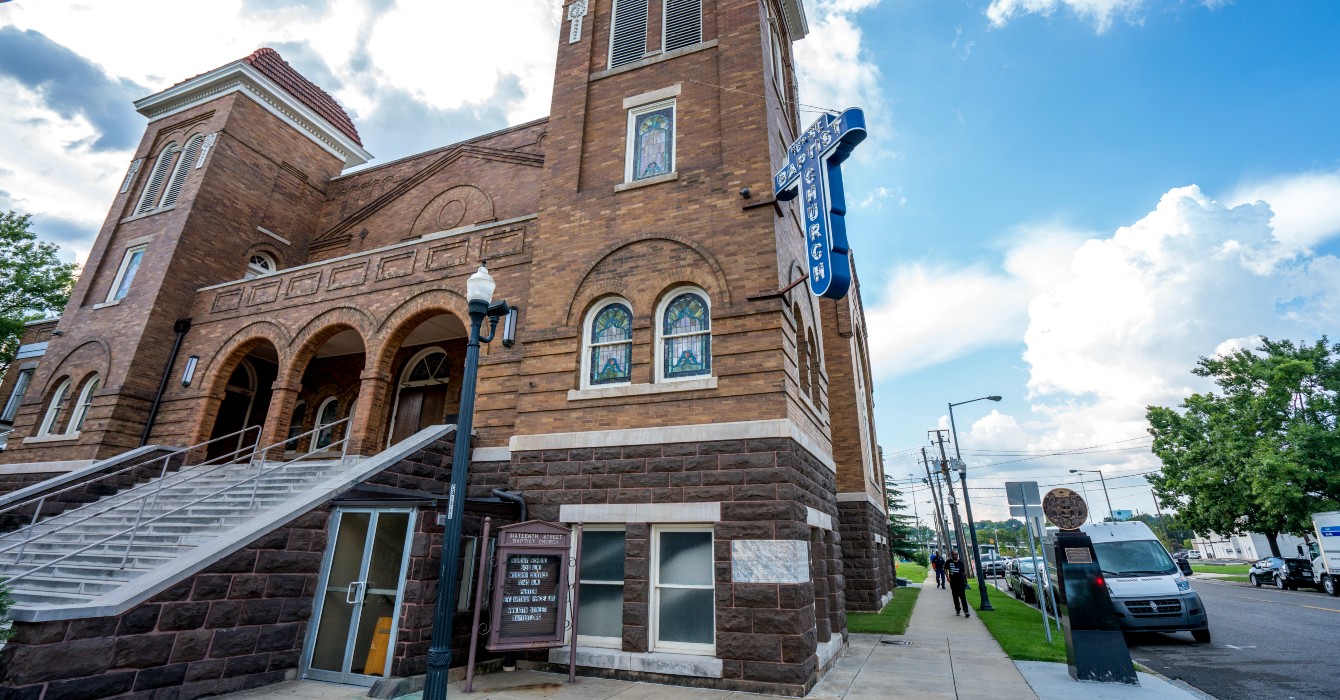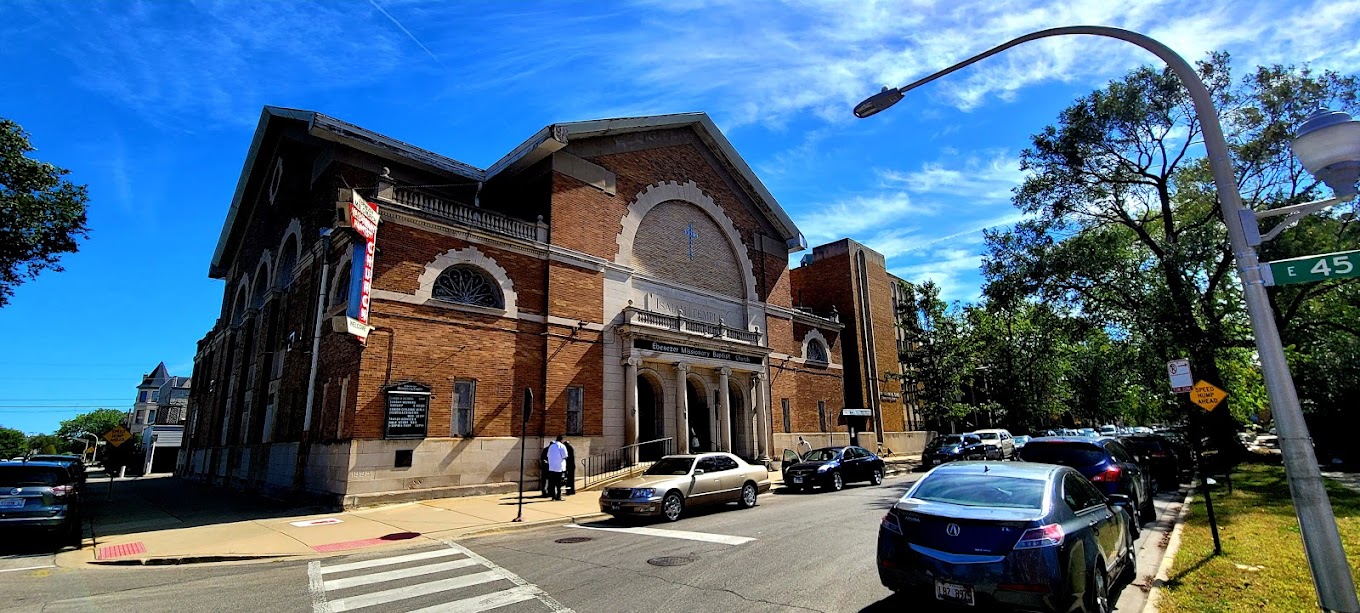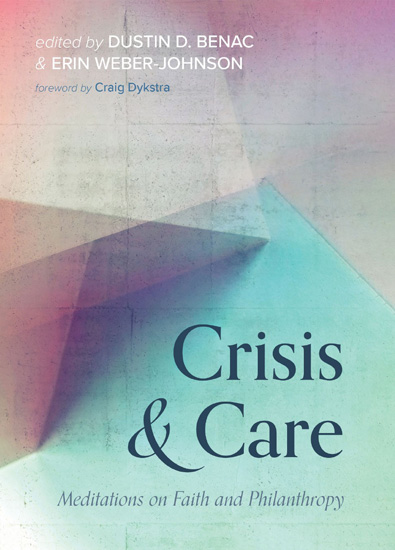“There is no Duke Divinity School without The Duke Endowment.”
I heard this statement 17 years ago when I came to work at Duke Divinity. The longer I am here, the more I know it is true.
Duke Divinity and The Duke Endowment share an intertwined history. Both were established by the stroke of James B. Duke’s pen in his indenture that also established Trinity College as Duke University 100 years ago.
If you work at Duke, these details matter. But even if you don’t, it’s important to understand what it means for a ministry to be dependent on a single human source.
We are all dependent on God and each other. Some of us are “sponsored” in ministry. A sponsor provides a substantial portion of the revenue but does not typically receive the services of the organization. The relationship can be a gift, a contract or a bit of both.
Back in the 1990s, I first went to work for a sponsored project. I was hired to establish a ministry for congregations and pastors at a hospital. The initial funding came from the hospital’s denomination. We received no cash from the hospital, but it did provide in-kind contributions like human resources, infrastructure, office space and such.
Revenue for the center eventually included fees collected from congregations and ministers that we served, as well as grants. The denomination made an allotment of money to support the work annually. As we grew, the funding from the denomination became a smaller portion of a growing pie. Eventually, it was 20%.
When I consulted experts in business at the time, I was told that 20% of revenue coming from a single source was a heavy dependency. Our center would likely not survive if the denomination pulled out its funding. We were “sponsored” — terminology from the research world — even though 80% of our money came from elsewhere.
One of the challenges in that sponsored relationship was that the denomination’s initial support for the ministry shifted — to neglect and, eventually, to opposition. The ministry’s host, the hospital, had a much more positive relationship with the denomination throughout the period. The money flowed each year, but I was uneasy. Being dependent on a sponsor that does not believe in the work feels tenuous.
With 15 years of experience as part of a sponsored project prior to my moving to Duke, I knew that the dependency of Duke Divinity on The Duke Endowment was important for me to understand. It seemed solid. The school’s leaders paid attention to the Endowment’s priorities, and the Endowment was keen to honor the intentions of its founder.
The key to working well with a sponsor is to understand the process of negotiating priorities. If the sponsor is a denomination, I have found that the process is often informal and has layers of denominational politics embedded in it. One of the reasons that the hospital wanted me to start that organization in the 1990s was that I had recently chaired the denomination’s budget committee. Politics was more important than consulting skills in selecting me as the founder.
When a sponsor is a foundation, the process of support can be more formal. Foundations often issue requests for proposals that outline what they are interested in funding. Such requests indicate who is eligible to apply, the amount that will be considered, and questions that need to be addressed in an application.
Some foundations are open to applications year after year to fund the same work. Many others don’t want to encourage organizations to be dependent on their grantmaking. Those that do allow for dependencies have specific reasons that are important to understand. Ongoing sponsorship that can last for many years is a sign that the foundation’s mission is accomplished through the relationship with the grantee.
In the case of Duke Divinity, James B. Duke wanted the university to have a school for preachers. The Duke Endowment was also charged with supporting United Methodist congregations in rural communities in North Carolina. Today, the school has numerous projects that specifically address these congregations, and there are both historical and pragmatic reasons for the sponsorship arrangement.
The most significant mistake I have witnessed with sponsored work is for the ministry to assume that it is entitled to future funding. Approaching a sponsor as if the money is owed to the ministry creates tension. Organizations and sponsors that maintain ongoing dialogue about the mission are much more likely to be able to adjust as circumstances change. An organization that assumes the sponsor “must work with us” likely misunderstands the relationship. If a sponsor is seen as a problem to be solved, then the time of sponsorship is likely going to be shortened.
I find it helpful to understand the sponsor’s aims and look for the places where the ministry’s purpose and strengths overlap with those aims. The most fruitful place is to be of service to the sponsor as it understands community needs and opportunities.
Long-term sponsorship and short-term sponsorship are very different. It is good to be clear which type of relationship your ministry is experiencing. I have been describing dynamics of long-term relationships that last decades. Short-term relationships could be five to 10 years or longer, but from the beginning, the end time is established. Many grants are short term. They are intended to help a ministry start work and figure out how that work can be adjusted and sustained over a long period of time.
Many times, the administrators of a grant assume that donors can be recruited to fund the work in an ongoing way and/or that recipients of the ministry’s services can bear the cost of the services.
Getting clear about the sponsor’s intention over the short and long term is significant to the ministry’s establishing a strategy for ongoing sustainability.
Sounds simple, right?
It can be surprisingly difficult to get all the ministry’s stakeholders to understand the intentions of a sponsor. Moreover, the sponsor can shift priorities, and a long-term relationship can quickly become a short-term project.
Is your ministry sponsored? Who in the ministry has a relationship with the sponsor? How clear are you on the mission and objectives of the sponsor? How well aligned is your calling, the ministry’s mission and the sponsor’s intent? When any of these things shift, how can you proceed?
The key to working well with a sponsor is to understand the process of negotiating priorities.






















